In the courtroom, it isn't just one side citing religious freedom. There are now numerous faith groups that support marriage equality, in both the religious and civil spheres, and one has gone so far as to file a lawsuit.
That's the United Church of Christ, a denomination that bills itself as "a church of extravagant welcome," which filed a challenge to North Carolina's ban on same-sex marriage. The UCC has a long record of progressive activism, having ordained its first openly gay minister in 1972. And it argues that North Carolina's anti-equality law criminalizes churches that solemnize marriages for same-sex couples.
The lawsuit is a reminder that things are changing in organized religion. Consider that one of America's largest Christian churches, the Presbyterian Church (USA), is on the verge of joining the marriage equality column, as its local governing bodies begin voting on whether to ratify a resolution opening church marriages up to gay couples.
There are a lot more examples. On the following pages we provide a look at the UCC's activism as well as the other Christian denominations, branches of Judaism, and religious groups that endorse equal marriage rights and LGBT equality.
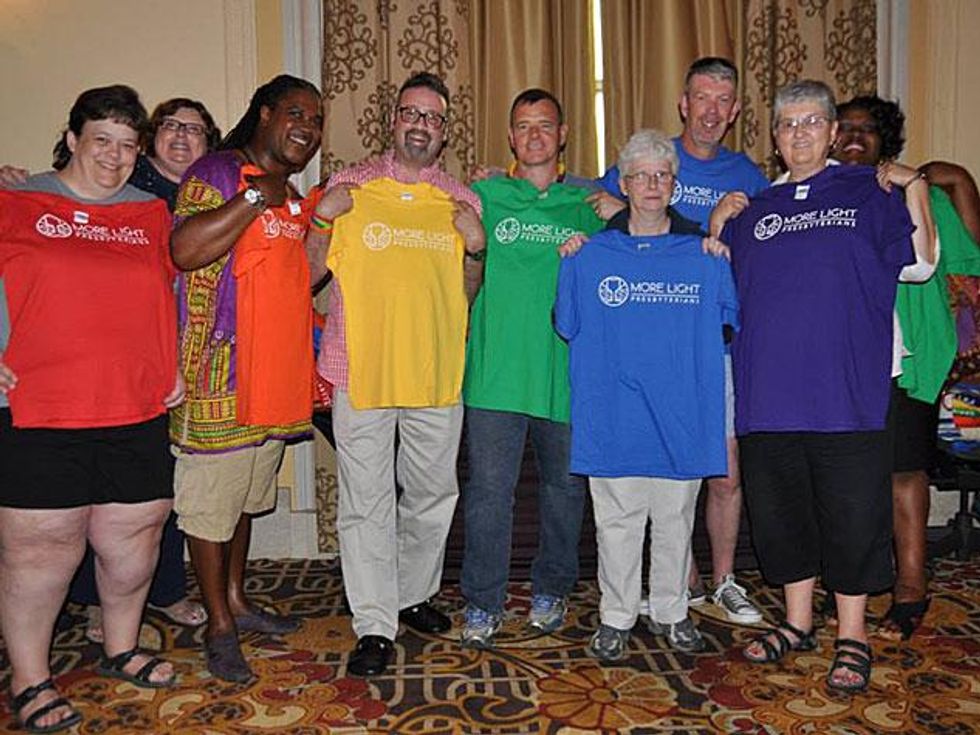
Presbyterian Church (USA)
The Presbyterian Church (USA), with nearly 1.8 million members, is poised to become the second-largest mainstream Protestant denomination in the nation to embrace marriage equality. At the Presbyterians' General Assembly in June, 71 percent of delegates voted to change the language in the marriage definition in the church's Book of Order to include same-sex couples. This must be ratified by a majority of the denomination's local governing bodies, called presbyteries, before becoming churchwide policy. Voting by the presbyteries will begin this fall and must conclude by next June. Alex McNeill, executive director of More Light Presbyterians, which advocates for LGBT equality within the church, says he feels optimistic about the ratification vote.
In another action, which does not need presbytery ratification, General Assembly delegates voted to immediately allow ministers to conduct marriage ceremonies for same-sex couples in states that recognize such unions. The church had previously let clergy perform a rite of blessing for same-sex partnerships without characterizing them as marriages. Neither vote of the General Assembly requires ministers to perform same-sex weddings or congregations to host them.
In 2011, the denomination made another major move toward LGBT equality when a majority of presbyteries ratified a General Assembly resolution to allow the ordination of openly gay and lesbian clergy, including those in relationships. A tip: Don't confuse this church with the Presbyterian Church of America, a separate denomination, which considers homosexuality a sin.
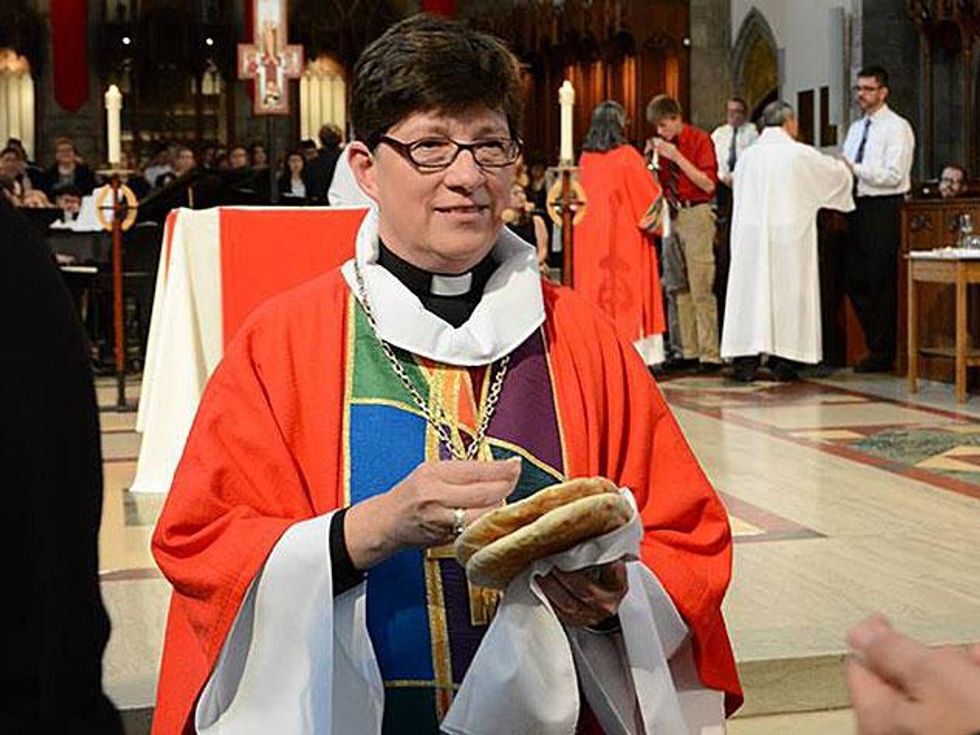
Evangelical Lutheran Church in America
The Evangelical Lutheran Church in America is the largest U.S. denomination, with 4 million members, to recognize LGBT equality and all that includes: access to church weddings, ordination of clergy who are in same-sex relationships, numerous resolutions affirming the church's support of LGBT people, and participation in programs for LGBT youth. The ELCA was formed in 1988 from the merger of three bodies -- the American Lutheran Church, the Association of Evangelical Lutheran Churches, and the Lutheran Church in America. Not to be confused with the Lutheran Church-Missouri Synod (a nationwide denomination, not limited to Missouri), which deems homosexual behavior "intrinsically sinful."
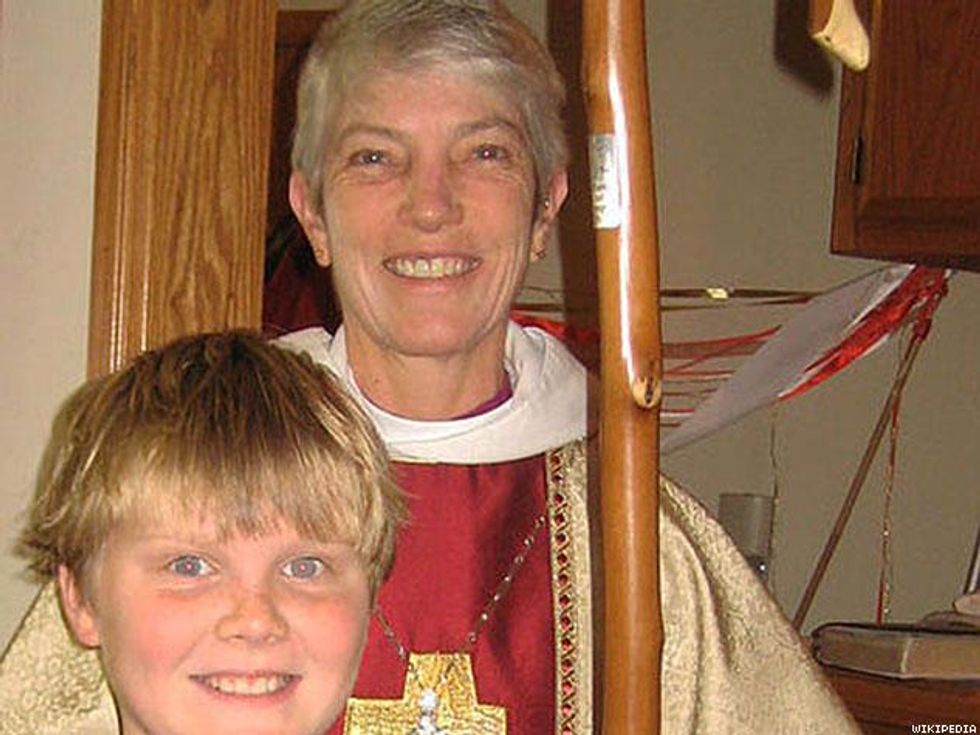
Episcopal Church
The Episcopal Church, which has about 2 million members, has ordained many openly gay and lesbian clergy members, and some of them have risen to prominent positions. Gene Robinson became the church's first openly gay bishop in 2004, when he assumed that post for the Episcopal Diocese of New Hampshire. He retired in 2013, but there are still several high-ranking LGBT clergy members in the church, such as Mary Glasspool, the first out lesbian Episcopal bishop; she is bishop suffragan, meaning an assistant bishop, in the Diocese of Los Angeles. The church has an official "rite of blessing" for same-sex unions, but it doesn't refer to them as marriages. The Episcopal Church is the U.S. branch of the worldwide Anglican Communion, but not all churches within the global body have a similarly welcoming stance. The Church of England, for instance, will not bless same-sex unions, and it will ordain openly gay clergy but expects them to remain celibate. After Robinson became a bishop, some Episcopal congregations left the denomination and affiliated with more conservative Anglican bodies overseas.
United Church of Christ
The United Church of Christ, which describes itself as "a church of extravagant welcome," has been long been out in front in the fight for LGBT equality, both within the church and in civil life. In 1972 it became the first mainline Protestant denomination to ordain an openly gay minister, and it has solemnized same-sex unions for years; since 2005, the church has made the same marriage ceremony available to both gay and straight couples. But it has also gone outside the church sphere, advocating for governments to recognize equal marriage rights for same-sex couples. This year the denomination filed a lawsuit challenging North Carolina's ban on same-sex marriage, saying it discriminates against religious bodies that endorse marriage equality and criminalizes ministers who officiate marriages for same-sex couples, as the law technically bars any clergy member from performing a marriage if the marriage is not licensed by the state. It's believed to be the first time a church has been a plaintiff in a marriage equality suit. The church also has a record of advocacy on hate-crimes legislation, repealing restrictions on gay people in the military, programs to end bullying of LGBT youth, and a host of other relevant issues.
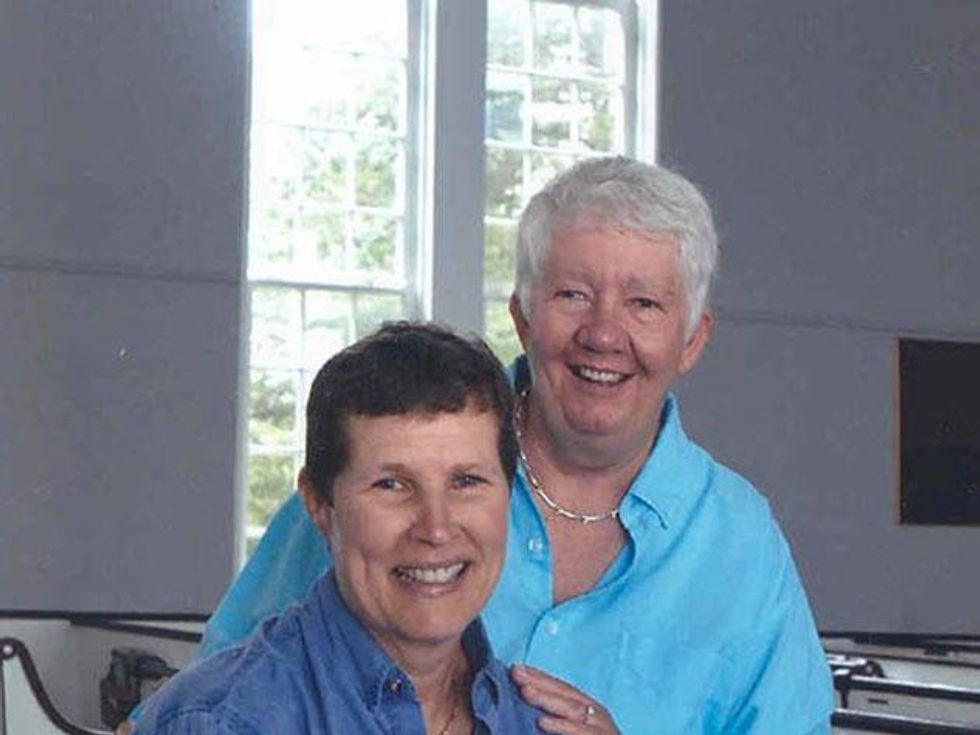
Unitarian Universalist Association
The Unitarian Universalist Association has been ordaining out gay and lesbian ministers since the 1970s, and it ordained its first openly transgender clergy member in 1988. It has been blessing same-sex unions for decades -- the first one may have taken place as far back as the 1950s -- and in 1984 it adopted a formal church policy providing for such ceremonies, followed by an endorsement of equal access to marriage in 1996. The denomination also has a long record of advocating for civil marriage equality and other LGBT causes. Church leaders have been speaking out against antigay discrimination since the 1970s, and the UUA has had an Office of Gay Concerns -- now called Lesbian, Gay, Bisexual, Transgender, and Queer Ministries -- since 1971.
Metropolitan Community Churches
Of course, if you're looking for an LGBT-friendly church, the Metropolitan Community Churches make it easy. The MCC is the first denomination established specifically to minister to LGBT people in an affirming fashion. Founder Troy Perry had been defrocked by a Pentecostal church for homosexuality in the 1960s, and in 1968 he hosted the first MCC service in his living room in a suburb of Los Angeles. The church now has 43,000 members and adherents in almost 300 congregations in 22 countries, and it remains a leader in the fight for LGBT equality.
Religious Society of Friends (Quakers)
The Religious Society of Friends, whose adherents are better known as Quakers, has no central authority that sets policy for the faith, but many congregations are LGBT-affirming and bless same-sex marriages. Quakers have a history of advocating for social justice, and for some Quaker groups this has included LGBT equality. The American Friends Service Committee, an independent Quaker nonprofit organization, has been working on LGBT rights since the 1960s. Friends for Lesbian, Gay, Bisexual, Transgender and Queer Concerns is a good resource for LGBT people interested in the faith.
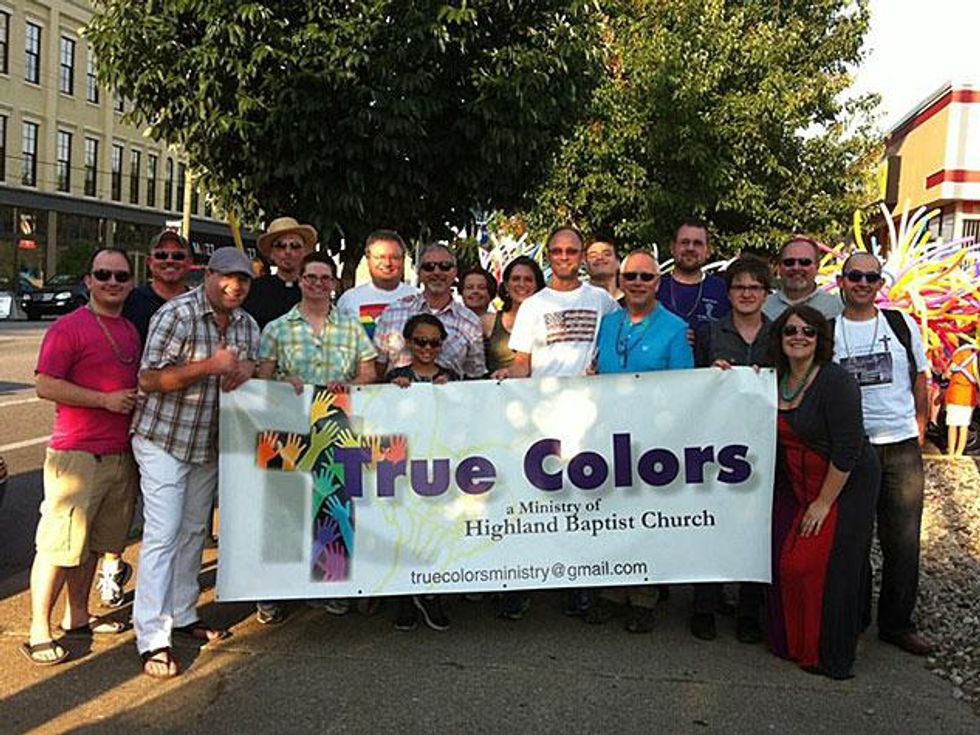
Baptist churches (various denominational affiliations)
Many of us associate Baptists with homophobia, but that's not always an accurate perception. True, the Southern Baptist Convention, the largest U.S. Protestant denomination, considers homosexuality a sin and is a leading opponent of equal rights for LGBT people. But there are many other types of Baptists, and some of them preach LGBT equality in the church and work for it in society; some congregations also solemnize same-sex marriages. A good place to find an LGBT-friendly Baptist church is the Association of Welcoming and Affirming Baptists.
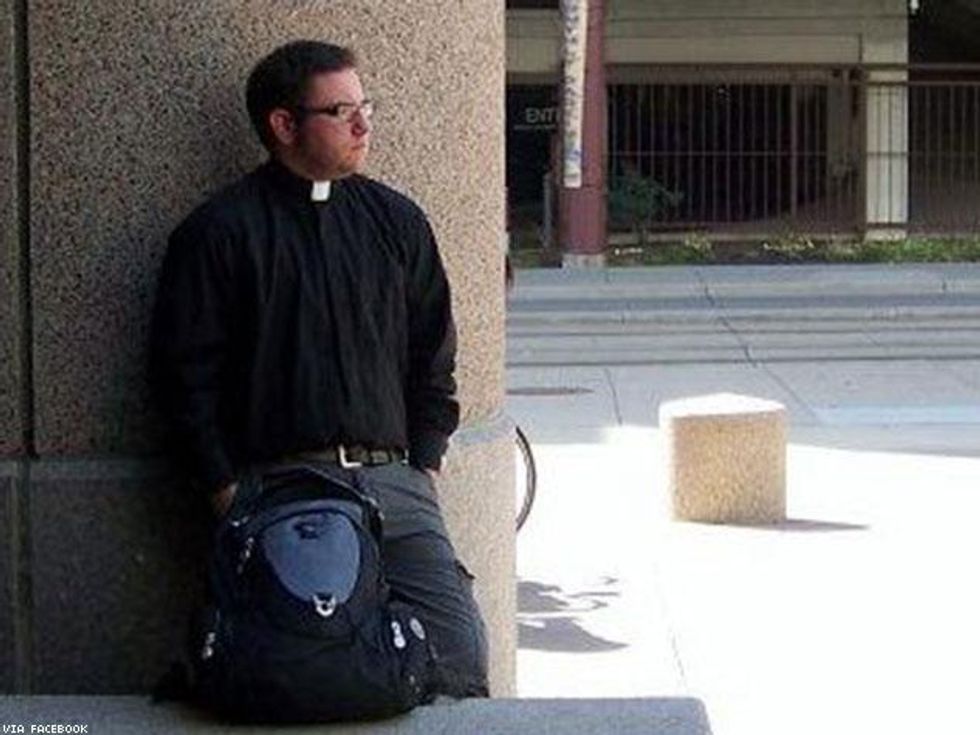
Old Catholic and Independent Catholic churches
Despite Pope Francis's conciliatory attitude toward LGBT people, the Roman Catholic Church has not given up its opposition to same-sex marriage or its expectation that faithful members will resist any urge to have gay sex. However, there are several denominations that consider themselves Catholic (with a capital C; most churches consider themselves small-c catholic, as in universal) but are not affiliated with Rome, and they are often LGBT-welcoming. Usually known as Old Catholic or Independent Catholic churches, they have their roots in a group of European churches that split with the Vatican in the 19th century. They offer a Catholic style of worship, sometimes with elements drawn from other traditions, but are not under the Vatican's authority, and they affirm the equality of LGBT people and women. Read more about them here.
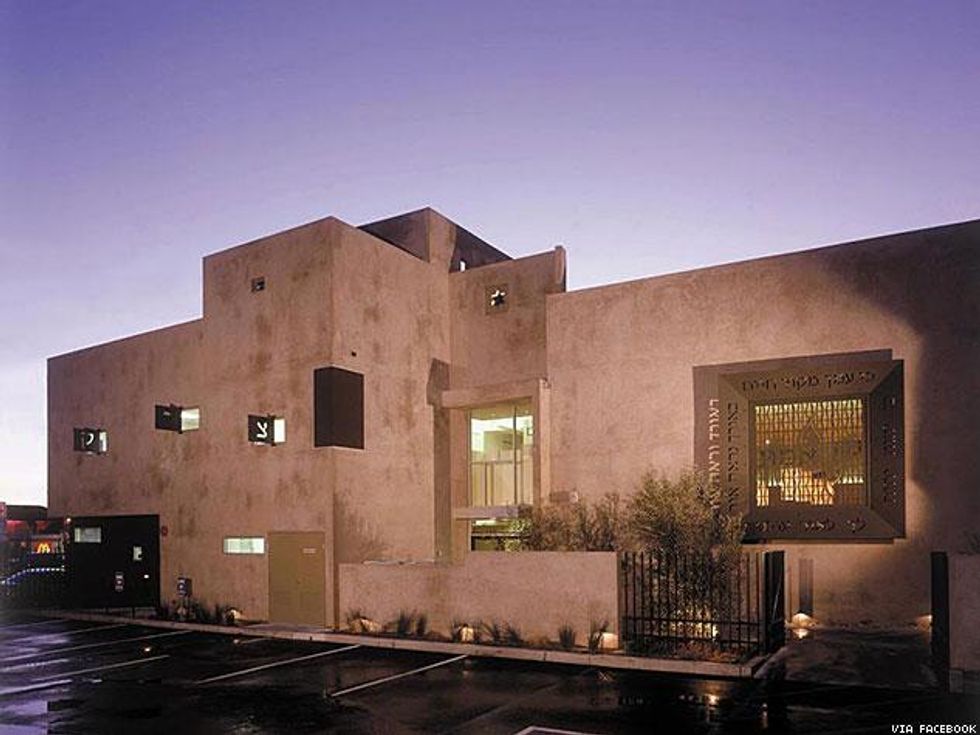
Conservative, Reform, and Reconstructionist Judaism
In Judaism, the Conservative, Reform, and Reconstructionist branches all support LGBT equality, ordain gay rabbis, and bless same-sex marriages. The latter two have a longer record of LGBT-friendliness, but the Conservative movement in 2006 adopted a policy of allowing its rabbinical schools to ordain openly LGBT clergy, and permitting Conservative rabbis to perform same-sex marriages. Many large U.S. cities have synagogues with primarily LGBT congregations. Orthodox Judaism, however, continues to hold that homosexuality goes against God's plan, and it will not sanction same-sex unions or ordain openly LGBT clergy. But at least one Orthodox rabbi, Steve Greenberg, has come out as gay post-ordination, and he leads an organization for LGBT Orthodox Jews called Eshel.
As for other faiths, Islam is not generally accepting of LGBT people, although there are some activists working to change this attitude, and some mosques are LGBT-friendly. The Hindu and Buddhist religions have no clear stand on same-sex marriage, and attitudes toward LGBT people vary within the faiths. And in addition to the Christian denominations listed in this article, there are some smaller LGBT-affirming Christian church groups, such as Unity, that readers may wish to check out.

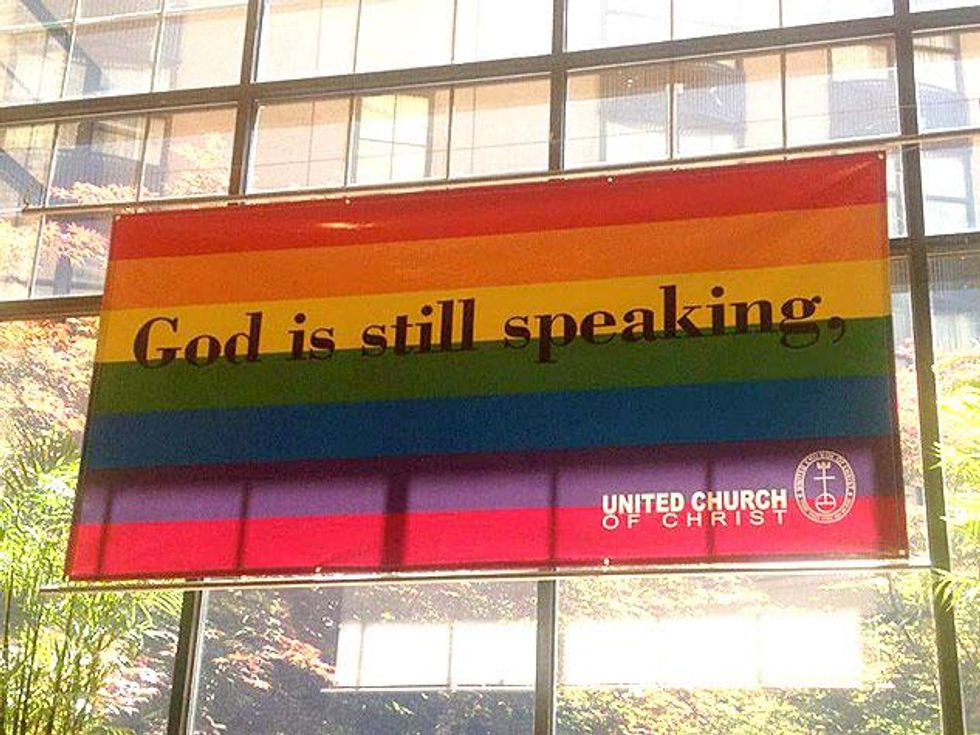
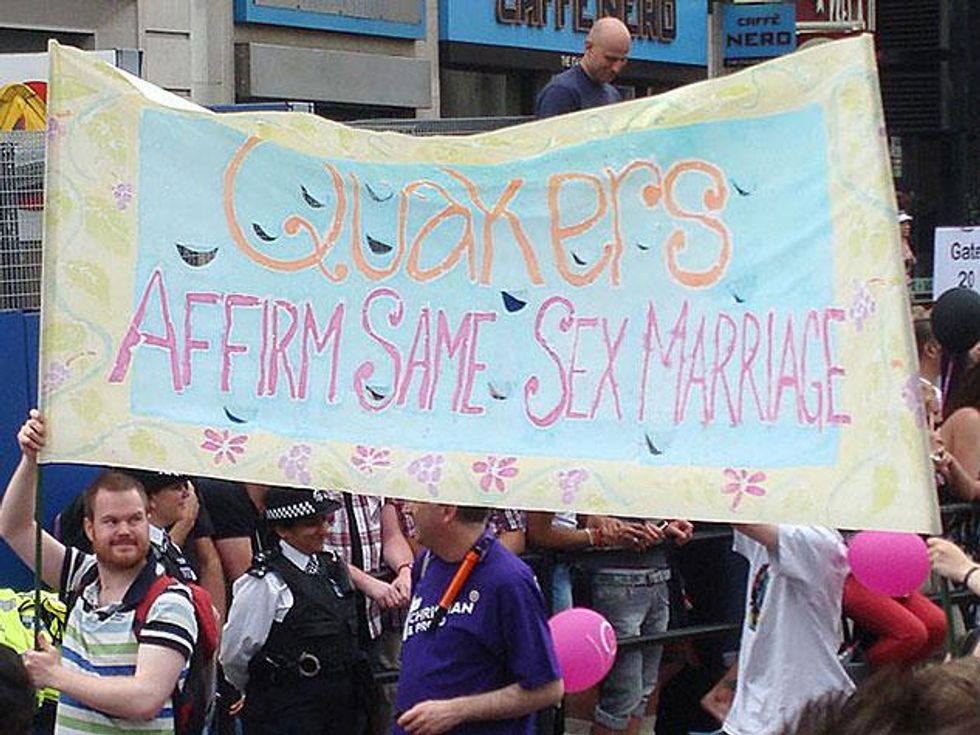
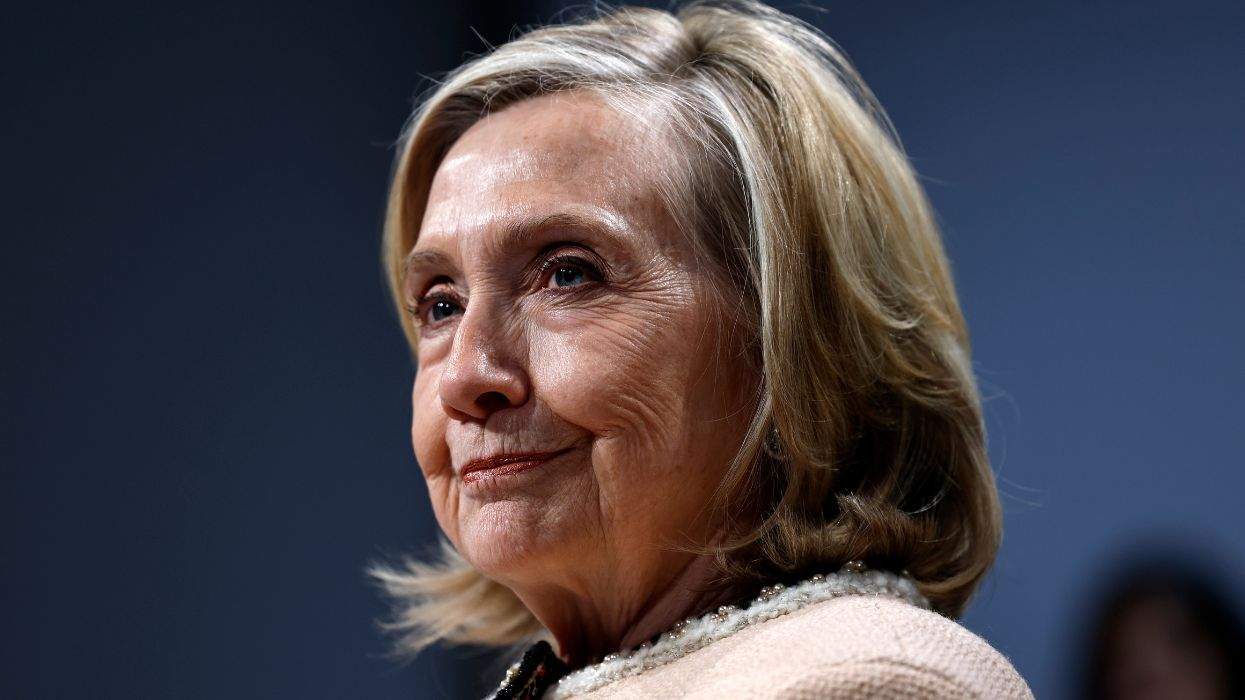




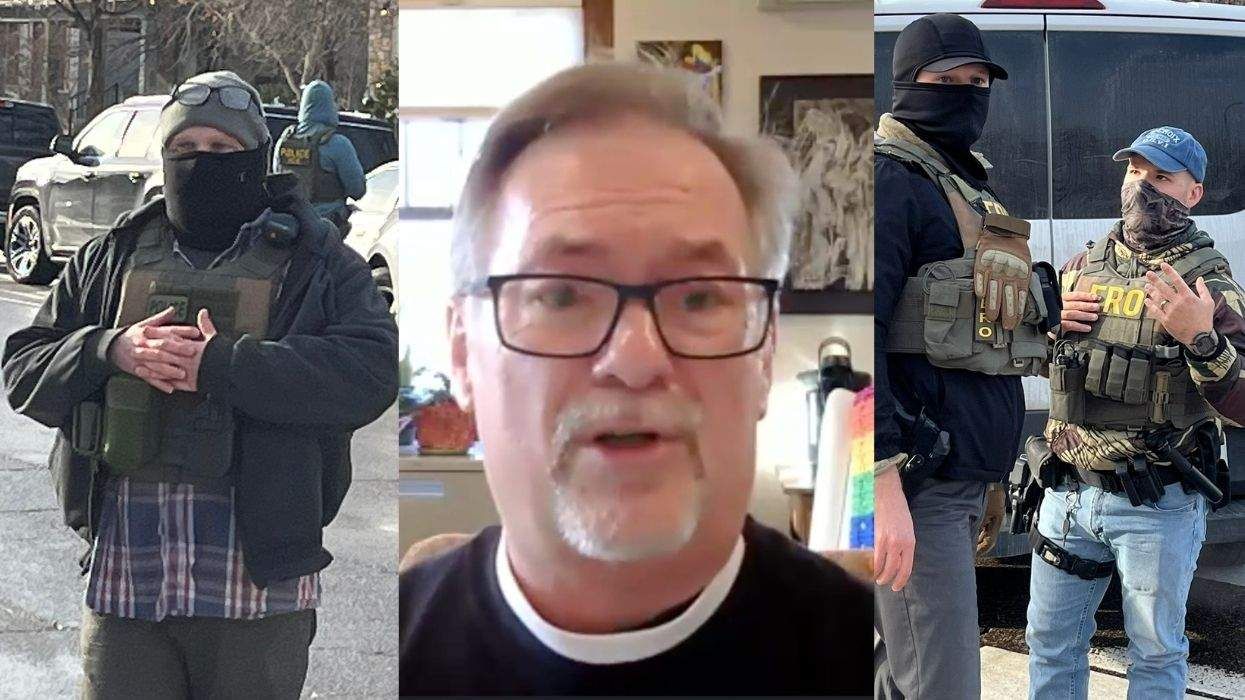

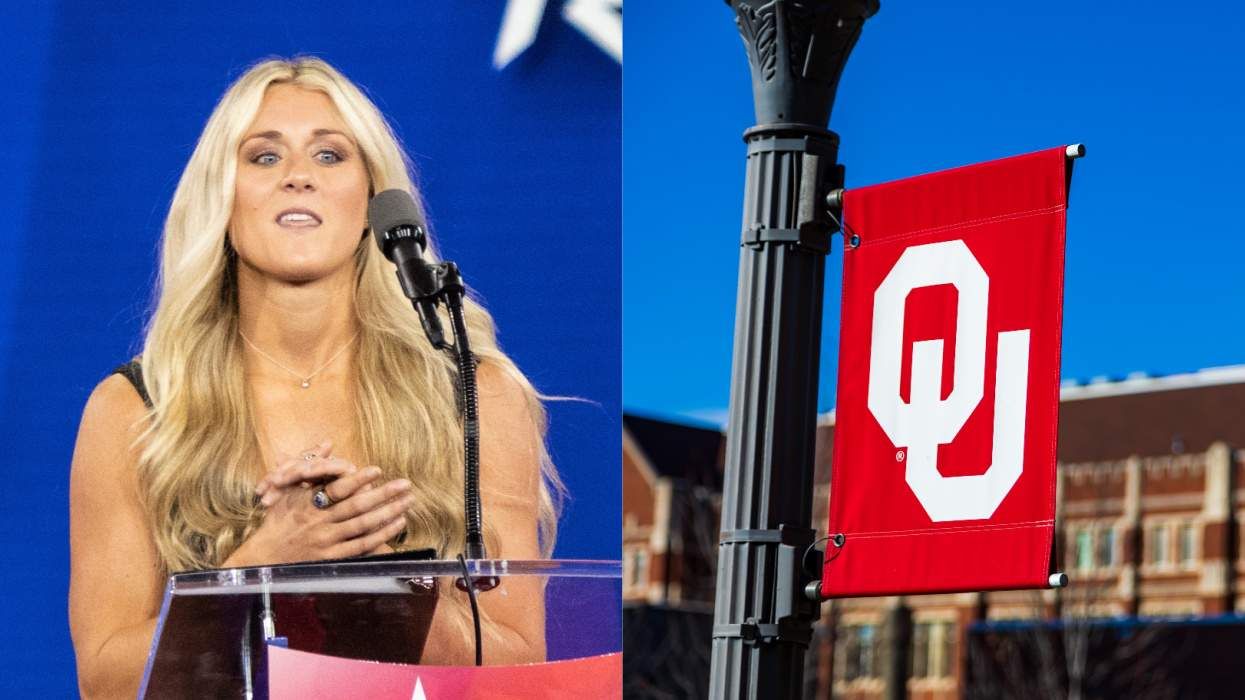






Charlie Kirk DID say stoning gay people was the 'perfect law' — and these other heinous quotes
These are some of his worst comments about LGBTQ+ people made by Charlie Kirk.